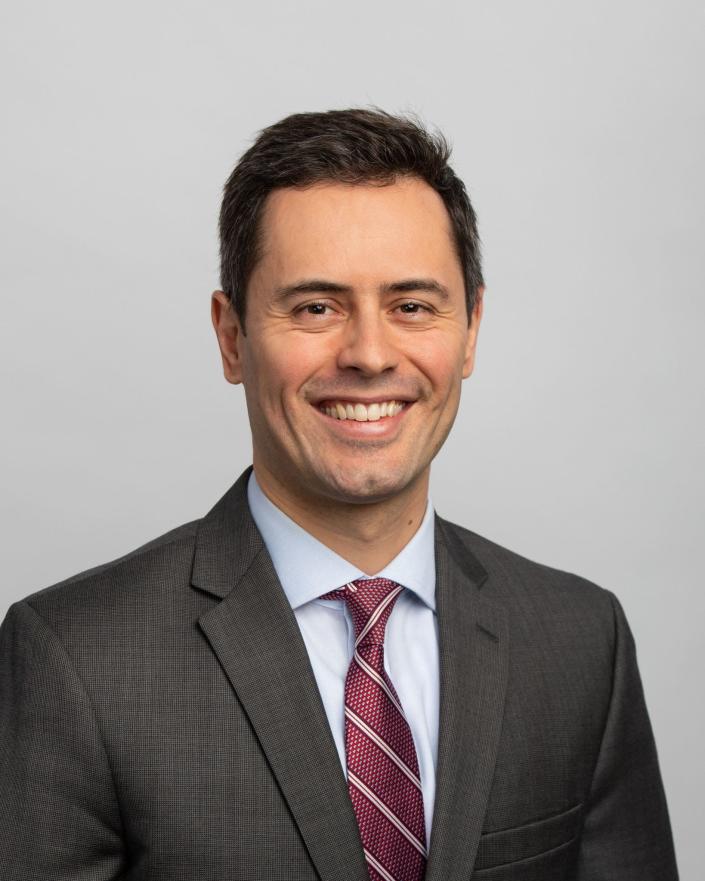Ohio kids merely ‘income statements on a balance sheet’ to school voucher opponent

Note: This guest column was penned by David Hodges who is defending the Educational Choice Scholarship (EdChoice) Program from a lawsuit.
For the past two decades, Ohio has made a simple promise to its parents: If your child is zoned to attend a poorly performing school or if your family meets certain income guidelines, your child can receive a scholarship to attend a private school that better meets your child’s needs.
This promise has enabled hundreds of thousands of Ohio students to have brighter futures by attending schools that would otherwise be unavailable to them.
More: Letters: Equity, education is right way to elevate those in need
But if a group of educational choice opponents has their way, that promise may be snuffed out. Recently, they filed a lawsuit alleging that this alternative to the traditional public school system is unconstitutional. Although the Ohio Supreme Court has already held that educational choice is constitutional, choice opponents have not gotten the message.
More: 100 public schools are suing Ohio, saying EdChoice voucher programs are unconstitutional
If the lawsuit succeeds, it will be devastating for the tens of thousands of Ohio students who rely on scholarship programs to get an education that works for them.

To thwart this cynical lawsuit from throwing these students out of school, five Ohio families receiving scholarships moved to intervene in the case to defend the programs with help from my law firm, the Institute for Justice.
Take Christopher Boggs. A father of three, he and his wife live in Columbus, where they rely on scholarships to send their children to local private schools whose academics and curricula they prize.
More: Letters: Fair School Funding Plan is best way forward to allocate education dollars
If not for the scholarships they receive, they would be forced to send their children to schools that Ohio designates as some of the worst-performing in the state. But because of the scholarships, they can stay in the community they call home.
Nor is their story unique. In 2021, over 50,000 Ohio students used scholarship programs to attend schools that were better suited for them. Their choice should be respected.
To do otherwise would prioritize the demands of school districts over the students and families those districts are supposed to serve.
More: Plan would give every Ohio K-12 student a voucher to attend private school
Unfortunately, that is exactly what educational choice opponents argue in their lawsuit. In their view, Ohio children are merely income statements on a balance sheet, and any alternative to the public school system threatens their bottom line.
Indeed, in an email last January, one public school advocate sought to raise money for this lawsuit by describing scholarship programs (and charter schools) as “ticks” that “siphon the life-blood” from school districts.
Leaving aside how troubling it is to characterize scholarship recipients this way, statements like these are revealing. Ohio’s scholarship programs were enacted in recognition of the profound responsibility that parents have for their children’s education.
For many parents, the best way to exercise that responsibility is to send their children to the neighborhood school. But for other parents, the far better option is to make a different choice. Ohio’s scholarship programs let them.
More: Ohio Republicans want state to become second in U.S. to have universal school vouchers
We live in a time when anyone can walk into a supermarket and choose from dozens of breakfast cereals. But when it comes to our children’s educations, most of us only have one choice—and that choice is no more right for everyone than one kind of cereal is right for everyone.
Twenty years ago, Ohio’s Supreme Court recognized this principle and rejected the idea that it is unconstitutional for students to have educational alternatives.
With this lawsuit, the courts can do so again.
David Hodges is an educational choice attorney at the Institute for Justice. Hodges lives in Annandale, Virginia
This article originally appeared on The Columbus Dispatch: What are the benefits of the EdChoice program in Ohio?
Read More: Ohio kids merely ‘income statements on a balance sheet’ to school voucher opponent

